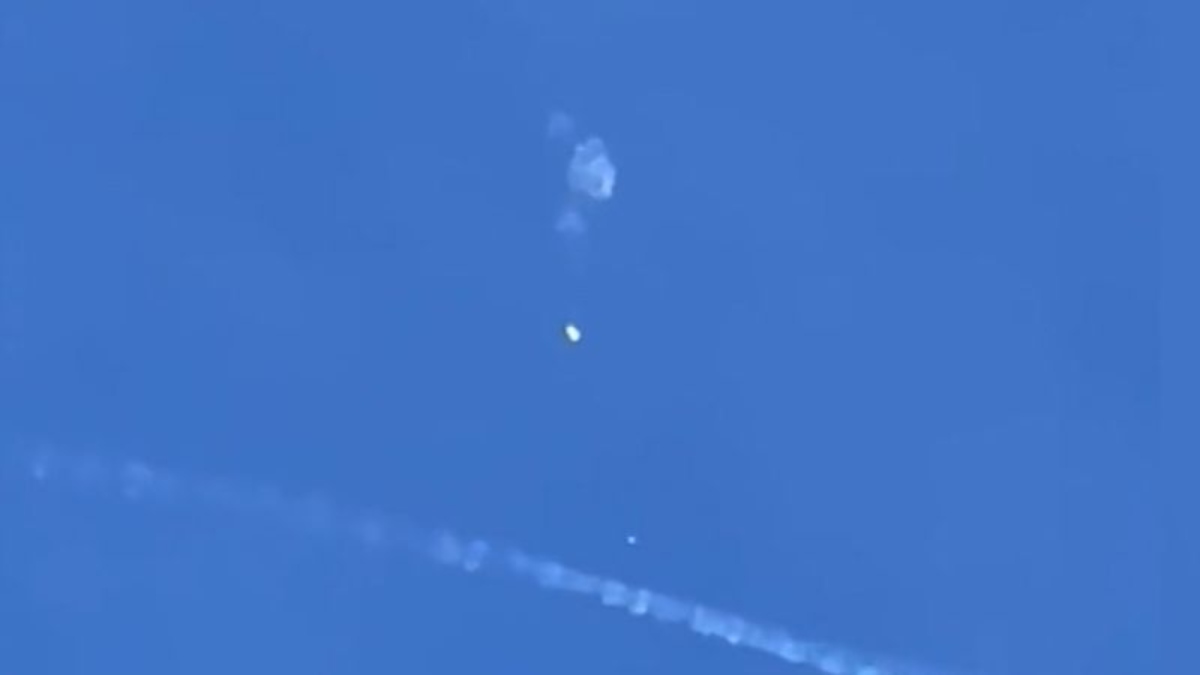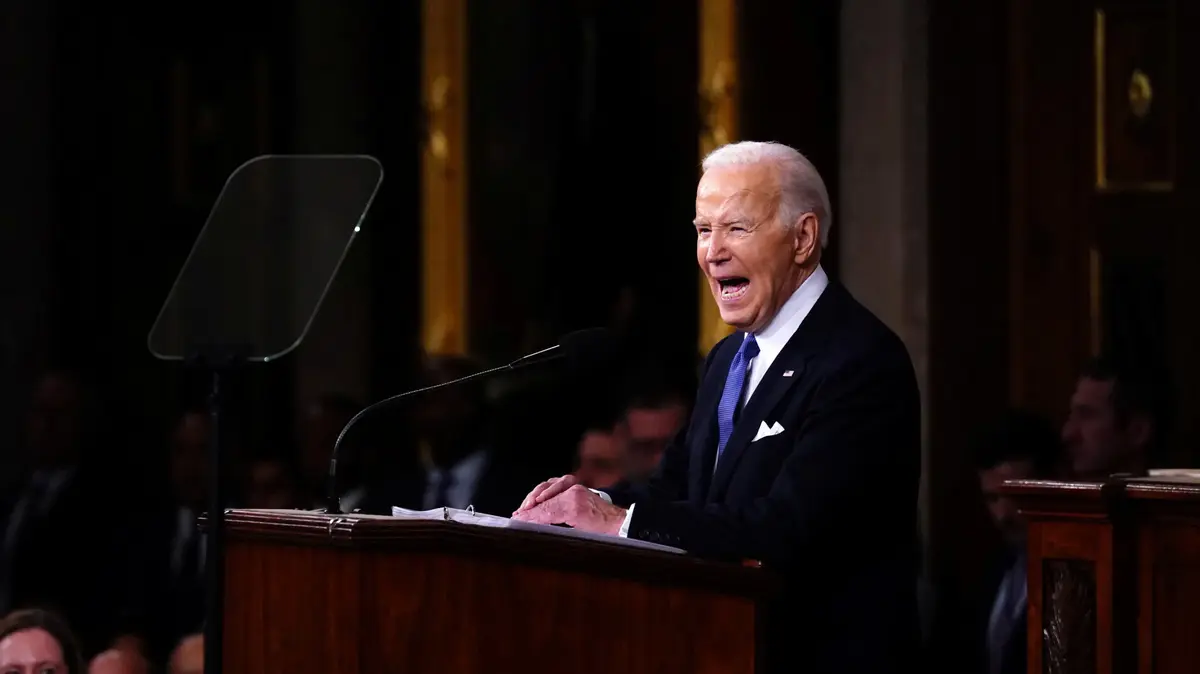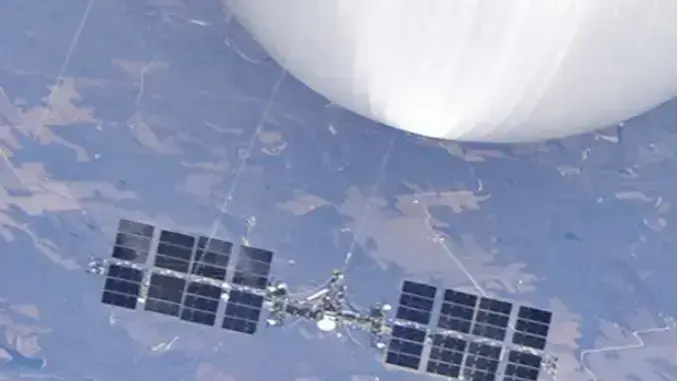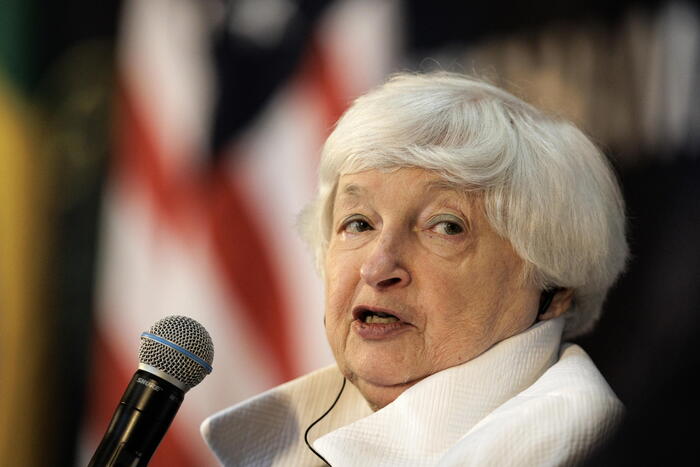Why are hot air balloons used as spy devices?
4:41
(CNN) --
The saga of the Chinese balloons threatens to mark a turning point in the dangerous new rivalry between superpowers: For the first time, Americans experienced a tangible symbol of Beijing's challenge to national security.
The craft, described by US intelligence services as a surveillance balloon, posed a modest, low-tech security threat compared to the geopolitical, military, cyber, economic and espionage rivalry that intensifies by the day.
But as it streaked across the American skies before being shot down Saturday off the Carolinas, the balloon created a sudden moment in which the idea of a Chinese threat to the American homeland was neither remote, nor theoretical, nor invisible, nor was it years ahead
And he highlighted how in today's polarized America, Washington's first reaction to a threat is to point fingers rather than unify.
Chinese surveillance balloons during the Trump administration were discovered only when Biden took office, official says
It was not the first time that Chinese balloons had crossed US airspace during this or the previous administration, and military officials told CNN that it was not considered a particularly serious threat to intelligence or national security.
But his mocking day-long jaunt from Montana to the East Coast sparked a media frenzy and uproar in Washington.
In what was at once a moment of high geopolitical risk and high farce, the White House struggled to explain why it had not immediately popped the balloon as South Carolina officials warned people not to fire their rifles. to the high-flying Chinese interloper.
advertising
All this left President Joe Biden in a very vulnerable position in the face of criticism from Republicans.
The balloon could not simply be ignored, especially as Secretary of State Antony Blinken was about to embark on a trip to Beijing that was quickly canceled as the political storm broke.
"We should not have allowed the People's Republic of China to mock our airspace," Senate Republican leader Mitch McConnell declared Sunday.
Although Beijing expressed unusual regret at the incursion by what it claimed was a weather surveillance aircraft, its critics see the incident as the latest example of a brazen willingness to flex its power outside its region, to trample on established norms between nations and as further evidence of an aggressive attempt to expand its influence and intelligence operations around the world, which have targeted Chinese Americans, universities and companies, in addition to traditional targets.
US shoots down Chinese hot air balloon 2:39
"The United States has made it clear that this is an unacceptable intrusion into American sovereignty," Transportation Secretary Pete Buttigieg said Sunday on CNN's "State of the Union."
Although China has dozens of spy satellites over the United States, like Washington over its rival, the visible audacity of the balloon flight has sparked fury in Washington.
This, in turn, threatens to unleash political, military and diplomatic forces in both nations that, while manageable in the short term, show how difficult it will be to prevent this escalating rivalry from reaching a boiling point and provoking a war in one of the defining threats of the 21st century.
Until the balloon crossed US airspace, there was a small window between Chinese President Xi Jinping's third term last year and the upcoming US presidential election in which cooler politics in Washington and Beijing could have facilitated a relaxation of diplomatic tensions.
That opportunity may have been missed.
Immediate questions for Biden
The aftermath of the crisis raises tough questions for Biden and is an unwelcome distraction from a State of the Union address on Tuesday that is a re-election campaign launch in all but name.
Republicans were quick to dismiss Biden as irresponsible, easily intimidated by China and slow to defend US homeland.
While these criticisms are easy for critics with a megaphone but no accountability, the political turmoil will create a treacherous environment for future US policymaking aimed at avoiding a confrontation with China.
The US military must explain why the balloon was not shot down before crossing the continental US, and the incident threatens to fuel tensions between the Pentagon and a White House under fire over the handling of the incident, as well as the debate about what to do next time.
Did the Republicans pressure Joe Biden to shoot down the spy balloon?
3:33
The ignominious end of the balloon, burst by a missile fired from a US plane, also weighs on volatile Chinese politics.
It represents a new embarrassment for Xi, whose consolidation of a third term has been overshadowed by a botch in the fight against the covid-19 virus pandemic, unprecedented protests against the blockade and now a serious crisis with the United States.
One wonders if the flight was a deliberate act to provoke the United States or if it was a mistake.
Or was China's hardline military looking to embarrass top brass or thwart attempts to cool things down with the United States before Blinken's visit?
The episode reminds us that while the ruling Chinese Communist Party is ruthless and repressive, power politics is just as treacherous in Beijing as it is in Washington.
As in the United States, the tense politics of China-US relations can lead to decisions that cause an escalation.
The American reaction
Biden's decision not to shoot down the balloon until it was over the Atlantic coast offered an easy opening for Republicans eager to brand him weak before his long-awaited re-election bid.
"As usual when it comes to national defense and foreign policy, the Biden administration reacted first too hesitant and then too late," McConnell said.
Florida Senator Marco Rubio called the incident a blatant defiance of American power, suggesting that Biden's restrained performance raised questions about whether he would deal with worse Chinese threats, such as democratic Taiwan.
"The message embedded in this to the world is, 'We can fly a balloon over the airspace of the United States of America, and they won't be able to do anything about it to stop us,'" Rubio, vice chair of the Senate Select Committee on Intelligence, said in a statement. CNN's "State of the Union."
Other Republicans, including former President Donald Trump, pounced when the balloon was not immediately shot down, despite warnings that its sheer size could cause damage or death on the ground.
For example, Arkansas Senator Tom Cotton said on Fox that "what started out as a spy balloon has become a trial balloon testing President Biden's strength and resolve, and unfortunately, the President did not make it." that test."
Republicans failed to take into account that officials said several balloon flights over the United States occurred during the Trump administration, although the transit of those suspected Chinese spy balloons during the previous administration was only discovered after Biden took office, he said. a senior administration official told CNN's Natasha Bertrand this Sunday.
Republicans have long viewed warmongering as a political weapon.
But many Democrats also see China as a growing threat, likely to trigger hardline policies that will deepen America's rift with its rival.
Although the Biden government has faced criticism for not making the globe public earlier in the week, the idea that the president is in the pocket of China is belied by a policy towards the communist giant that has launched a position of confrontation adopted by Trump.
(The former president initially cozied up to Xi and agreed to a failed trade deal before turning on Beijing when a Chinese-originated pandemic threatened his re-election bid.)
A look at the history of Chinese espionage in the United States
Biden has deepened US ties with its Asian allies to counter China: for example, he has succeeded in expanding access to bases in the Philippines and, in recent weeks, has reached an agreement with Japan on the offensive capabilities of the US Marines in that country.
He has also sought to bolster Western access and semiconductor manufacturing, in a blow to China.
If any foreign autocrat sees Biden as a softie, they need only look at the multibillion-dollar and effective proxy war he is waging against Russia in Ukraine, in the largest Western alliance mobilization since the fall of the Soviet Union.
Still, the political fallout is likely to continue to hamper Biden, though it's hard to imagine voters making his management of China—absent any future serious crisis—the deciding factor in 2024. The bursting of the balloon is the latest development unexpected, including controversy over classified vice presidential documents found at his Delaware home and an old office, thwarting Biden's attempt to focus on strong job growth and the extremism of the new House Republican majority of Representatives before his expected run for a second term.
The House will try to spoil his party this week with a possible resolution condemning his management of the surveillance balloon, which could pass before the State of the Union address, CNN's Melanie Zanona reported.
How political fury will affect diplomacy
The political storm could create conditions in the US that would complicate efforts to prevent the dangerous tailspin in Sino-US relations, the original purpose of Blinken's mission.
If Biden further escalates the US reaction to the incident, by bringing down the balloon, he could create a furious backlash in Beijing that will further escalate tensions.
Leading up to Blinken's visit, there were signs that Xi's government, beset by internal problems, wanted to at least tone down the relationship, building on the Chinese leader's meeting with Biden in Bali last year.
There had even been speculation that the trip could lead to the announcement of another summit between the leaders this year.
The US does not shoot down the balloon that China rules out is a spy 2:20
But if the balloon incident turns American public opinion even more against China, the president will have even less scope for diplomacy aimed at slowing the pace toward confrontation.
Another complication is the possible visit to Taiwan by Speaker of the House Kevin McCarthy, following that of his Democratic predecessor, Nancy Pelosi, last year, which took place despite anger from the White House.
China reacted furiously to that trip by launching massive naval maneuvers near the democratic island.
She has already warned that such a visit would violate the basic "one China" principle governing relations between Washington and Beijing, a position the United States does not accept.
Given the political uproar in Washington, McCarthy, who has just created a bipartisan commission to investigate what he says is the threat from communist China, has even more incentive to travel to Taipei now despite the current extreme tensions.
"I don't think China can tell me to go, anytime, anywhere," McCarthy said after meeting with Biden last week.
Another risk is that the balloon crisis could exacerbate already tense situations where US and Chinese forces come into close contact, such as in and over the South China Sea and around Taiwan.
A miscommunication between ship captains, for example, leading to a military confrontation could trigger a much larger escalation.
For this reason, restoring calm experts were dismayed by the leak of a memo written by US Air Force General Michael Minihan warning that his "gut gut" tells him that the United States has to be prepared for a war with China within two years.
The memo is not in line with the US assessments of Beijing's capabilities or its plans for Taiwan.
But it aggravates the feeling that a conflict is brewing and may be unavoidable.
The crises of the past have subsided, but today's China is different
There are many precedents for disastrous moments in US-China relations that have fizzled out, testament to the extreme economic and humanitarian price that both sides, and the rest of the world, would pay in the event of a major conflict.
During the 1999 Kosovo war, for example, US bombs hit the Chinese embassy in Belgrade, in what NATO called an accident, but which sparked an outburst of fury in China.
In 2001, just after President George W. Bush took office, a US surveillance plane and a Chinese jet collided over the South China Sea.
The Chinese pilot was killed and intense diplomacy was required to free the American crew, who made an emergency landing on a Chinese island 11 days later.
These incidents, however, occurred at a different time, when US policy was designed to introduce China into the world economy, as a competitor but not as an adversary.
That process failed after China took a nationalist turn under Xi and his power and ambitions grew at an astonishing rate.
Two decades later, Beijing's goals are increasingly seen in Washington as incompatible with American hopes of promoting democracy, a rules-based international system and its own power in the Pacific.
But when the United States talks of putting up barriers to its relationship with China and protecting the Western-backed rule of law, Beijing believes that the United States wants to thwart its own destiny as a great power.
As Chinese Foreign Ministry spokesman Mao Ning said on January 31, "We are against defining the whole of China-US relations solely by competition and using competition as an excuse to contain and suppress to others".
As such, many observers in both countries see the United States and China now on an inevitably at odds trajectory, a doom-fraught possibility only made more likely by the seemingly innocuous flight of a balloon across the United States.
china united states news


/cloudfront-eu-central-1.images.arcpublishing.com/prisa/CIWYA32EL2HWMI7DWEZGSK5F2U.jpg)











